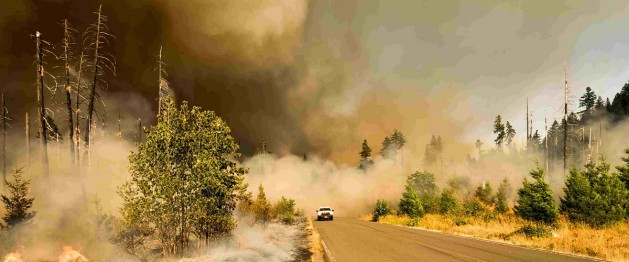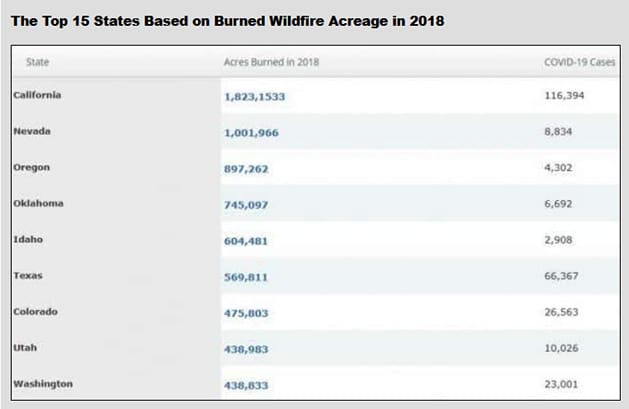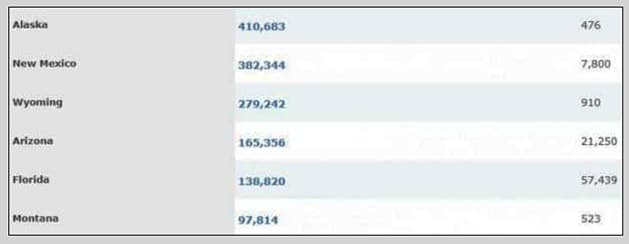 Firefighters and the U.S. Fire Service preemptively work to maintain forests and help prevent larger spreads of fires during the spring season. Courtesy/AFD
Firefighters and the U.S. Fire Service preemptively work to maintain forests and help prevent larger spreads of fires during the spring season. Courtesy/AFD
AFD News:
As we approach summer, most of the Western U.S. has faced a pretty dry winter and the country is preparing for yet another volatile fire season.
Even though COVID-19 has improved air quality, many parts of our infrastructure and economy have faced huge disruptions.
Wildfires could quickly change pollution levels and cause air quality to plummet, affecting those with predisposed conditions and creating challenges to our respiratory systems while we battle to stay healthy during Coronavirus.
Predictability of Wildfire Season
Firefighters and the U.S. Fire Service preemptively work to maintain forests and help prevent larger spreads of fires during the spring season.
This year, COVID-19 forced cancellations or postponed training, camps, and crucial controlled burns. Vice.com outlines some of the key points that are causing worry going into the year.
- Postponed or cancellation of in-person training of firefighters when some areas already face a shortage of professionals that fight fires and save lives.
- Postponed prescribed burns that usually thin forests and reduce the amount of fuel a wildfire can use to spread could lead to increased danger in rapidly spreading fires and to endangering more lives during early suppression.
- Increased risks of spreading sickness since camps force firefighters to have close contact, sleep, eat, and ride in vehicles together. This could mean quarantine for firefighters after tours.
- Evacuations of whole towns could cause crowded shelters where social distancing will not be an option and people may be in close quarters for long periods of time.
- High smoke exposure irritates respiratory systems and can worsen heart and lung diseases which could cause increased vulnerability to COVID-19.
Cleaner Air Quality from COVID-19 Lockdowns
Air quality has improved worldwide with some areas seeing results of up to a 60% reduction of nitrogen dioxide according to an article on Sciencedaily.com. The lockdowns have also resulted in a noticeable drop in CO2 emissions since production and travel is down. The improvements towards cleaner air have been visible to the naked eye across many normally polluted cities where people are now seeing blue skies, tops of skyscrapers, and even views out over their once grey horizons.
Now, the decrease in air pollution may also be saving lives. Researchers at Harvard’s T.H. Chan School of Public Health published a study that concluded that small increases in long-term exposure to fine particulate air matter (PM2.5) cause an increase in the risk of dying of COVID-19, which targets the respiratory system and can lead patients to develop pneumonia.
How do Wildfires and COVID-19 Relate?
Since COVID-19 affects the respiratory system and wildfire smoke can diminish the body’s immune system, the two combined could have disastrous consequences.
Each year when fire season approaches, it’s important to be as prepared as possible, and this year it may be more important than ever.
Here’s a comparison of which states had the most burned acreage and how many coronavirus cases that state currently has as of May 28th, 2020.
The 2019 Wildfire Risk Report analyzed homes at risk of wildfire damage using metrics of average burned acres in 2018 as well as an overall average from 2002 to 2018. We compared these numbers to the number of COVID-19 cases to see which states could potentially be facing the catastrophic event of wildfires and Coronavirus overlapping to form even larger issues for the state.
The numbers below show that California, Texas, Florida, Colorado, Washington, and Arizona may be facing the largest challenges this year.

 How Can You Protect Yourself From Bad Air Quality During Fires?
How Can You Protect Yourself From Bad Air Quality During Fires?
How well a building is ventilated and whether the air filtration system is effective are two factors that can ensure good indoor air quality during a smoke event. A good filtration system is able to reduce particle levels, and the EPA recommends having a MERV 13 filter or higher that can help keep air quality indoors healthy. It’s also important to run your AC. AC units don’t pull outdoor air into your home; instead, they work as heat exchangers, pushing heat from your indoor air outside and circulating your indoor air through a filter. Hence the importance of having a high-quality filter to help maintain the air you breathe whether you’re on lockdown due to COVID-19 or staying put due to forest fire pollutions.
If you’re interested in learning more about protecting your indoor air quality, check out the rest of our Helpful Tips.

